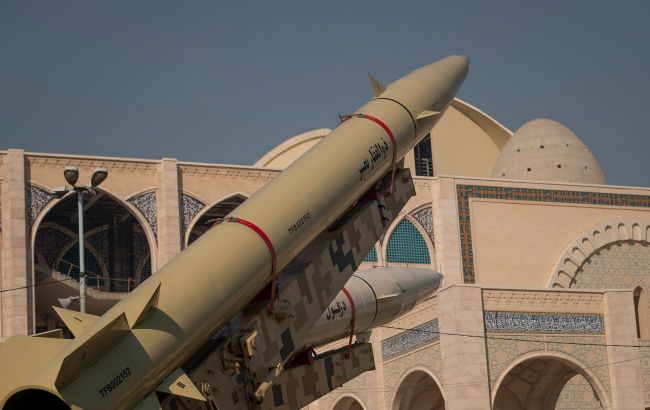How close Iran is to building nuclear weapon and what holds it back - Analyst's opinion
 Photo: An analyst estimated on how long it would take Iran to produce nuclear weapons (Getty Images)
Photo: An analyst estimated on how long it would take Iran to produce nuclear weapons (Getty Images)
Iran could create nuclear warheads within six months. Tehran is not taking the final step for several possible reasons, one of which is that this position benefits Iran, according to the article by RBC-Ukraine titled "On the brink of abyss: Will Iran build nuclear weapons and how to halt it."
Valeriia Gergiieva, an analyst at the Odesa Center for Non-Proliferation and Disarmament, told RBC-Ukraine that Iran could create nuclear warheads within six months. These conclusions are based on data from the IAEA, which, despite restrictions, has some access to Iran's nuclear facilities.
According to the IAEA, as of August, Iran had 5.7 tons of uranium-235, 813.9 kg enriched to 20%, and 164.7 kg enriched to 60%.
It should be noted that to create nuclear weapons, uranium must be enriched further - at least to 90%. To make one tactical nuclear warhead, 25 kilograms of uranium-235 are needed.
The problem is that uranium can be enriched to the required level not only at large facilities known to the IAEA but also at smaller, hidden facilities. This makes it challenging to track when this process might begin.
Why Iran has not yet built nuclear weapons
According to analyst Valeriia Gergiieva, it is currently beneficial for Iran to remain a so-called "threshold" state. This is also evidenced by statements from Iranian President Masoud Pezeshkian expressing a desire to resume negotiations.
"Iran seeks leadership in the region. If it is to sit down at the negotiating table with the US, it will only do so on equal terms. And nuclear weapons could provide that equality. This threshold status already gives Tehran a bit more assertiveness and confidence," the analyst said.
There is another opinion, though. Iranian opposition figure Vahid Beheshti, who currently resides in London, believes that Israel is preventing Tehran from making the final step.
"They would like to take that final step, but it hasn't happened yet because the Israelis, Mossad, are carrying out continuous targeted operations in Iran. They have excellent agents who do their jobs well," the politician told RBC-Ukraine.
Russia and Iran
According to analyst Valeriia Gergiieva, Iran has the technology to create nuclear weapons, but it lacks the resources. Russia is coming to Tehran's aid.
According to the expert, Iran primarily receives financial support to maintain its economy and invest in its nuclear and missile programs. Previously, sanctions slowed Iran down, and the US could strike at the Iranian economy.
"Now, this is changing, and very quickly. Not only Russia but also China has begun to work with Iran in terms of economic interests. This gives Tehran confidence," Gergiieva said.
Russia and Iran have strengthened their cooperation after Russia's full-scale invasion of Ukraine. Their collaboration is expected to be formalized soon. A comprehensive strategic partnership agreement between the two countries is expected to be signed at the BRICS summit in Kazan, Russia, on October 22-24.
Massive attack by Iran on Israel
On October 1, Iran launched a powerful airstrike on Israel. Tehran fired nearly 200 ballistic missiles at Israeli territory.
The Israel Defense Forces repelled the attack with assistance from American destroyers. Preliminary reports indicate that there were no casualties in Israel as a result of the attack. More details about the large-scale bombardment can be found in an RBC-Ukraine article.
The White House called the Iranian attack a significant escalation but stressed that it was unsuccessful and ineffective.

